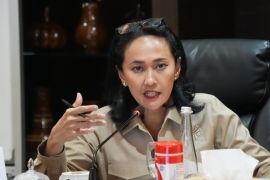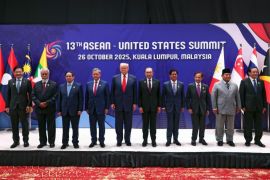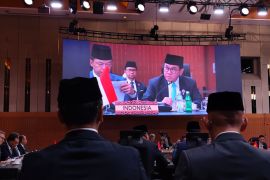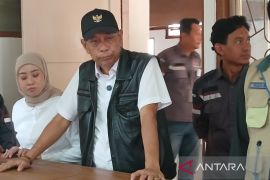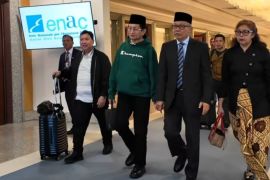Bali (ANTARA) – At the recently concluded, 2024 ASEAN ICT Forum on Child Online Protection, children and young people have asked the ASEAN representatives to make the internet safer for all. They reiterated that it is everyone's responsibility to protect children online. The children asked for:
-Making laws and policies easier to understand for children
-Expanding access to services especially for children with disabilities and out of school children, and those living in remote and underserved areas.
- Building digital media literacy- - to teach children, parents and educators about online safety.
“Children’s online safety requires a multi-stakeholder response across borders. We must collaborate with governments and industry partners to ensure a safer online experience for children. This means implementing safety by design, embedding age-appropriate safeguards, content restrictions, and safer interactions—ensuring no direct contact between adults and children—while also addressing peer-to-peer exploitation. Our goal is for children to have a safe, seamless experience both online and offline,” says Hanneke Oudkerk, Regional Director Asia ChildFund International.
“The children are asking for a system that enhances their safety without invasive measures like ID verification. They want to feel secure online but also want to maintain their freedom to express themselves without feeling constantly monitored or restricted,” Oudkerk further adds.
These recommendations have emerged after an extensive process of consultation with over 5600 children and young people led by ChildFund International and UNICEF. The consultation results reveal that only 18% of teachers provided information on online safety to children. Only 2% parents of the participants knew about online safety. Just over half of children and young people know about the laws that protect them from online violence. Only 39% believe these laws are very effective.
Online safety initiatives such as ChildFund’s Swipe Safe project promote online child protection with children, parents, frontline workers and law enforcement across the prevention and response spectrum.
The consultation was done through an online survey and focussed group discussions finally culminating in a national consultation spread across Semarang, Lampung, Kupang, and Jakarta, ensured representation of different children’s groups such as children with disabilities, those living in underserved and remote areas and urban communities. Key government officials from cybercrime unit of the police and child protection units were also consulted.
The discussions at the ASEAN ICT Forum, also centered around the online experiences of different genders. This has bearing on how survivors of online abused are supported. “Taking a survivor centred approach strengthens protection systems and fosters a more compassionate, trauma-informed, and effective response to online child protection,” reiterates Jessica Leslie, Director, Online Protection, ChildFund International.
“Survivor support interventions should include family and community to provide a sensitive and responsive ecosystem for the survivors,” says Reny Haning, Child Protection and Advocacy Specialist, ChildFund International in Indonesia.
Reporter: PR Wire
Editor: PR Wire
Copyright © ANTARA 2024







